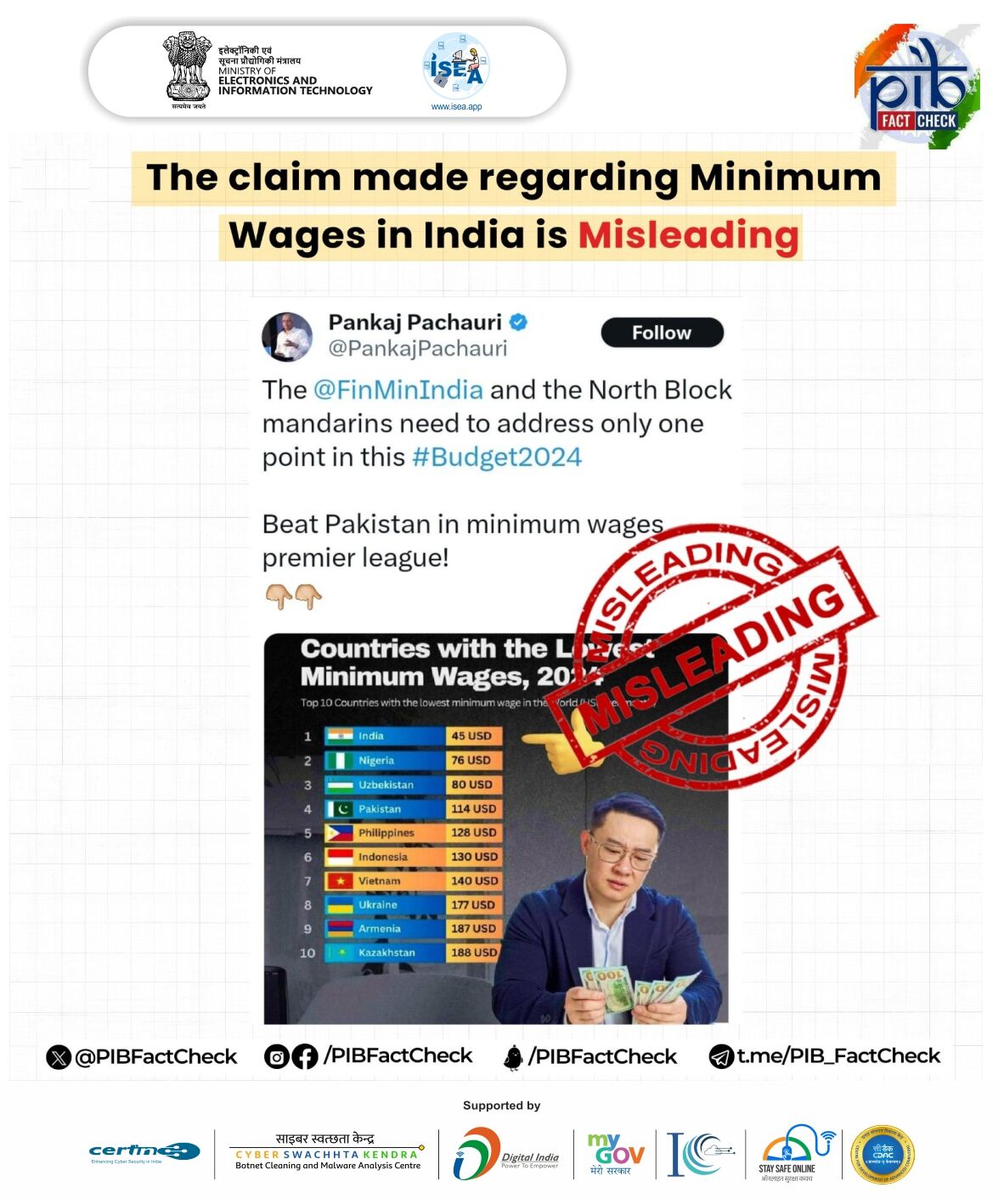India's Minimum Wage: Misleading Comparisons Debunked
A graphic circulating online claims that India has the lowest minimum wage in the world, citing figures comparing it to countries like Pakistan, Nigeria, Uzbekistan, and others. While the image presents seemingly concrete figures, a closer examination reveals a misleading picture that oversimplifies a complex issue.
The Misleading Graphic:
The graphic in question displays minimum wage figures for several countries, with India at the bottom of the list. However, it fails to provide crucial context, such as:
- Date of Data: Minimum wage regulations change over time. The data presented might be outdated and not reflect current rates.
- Currency Conversion: Comparing wages across countries requires converting currencies to a common unit (e.g., USD). The graphic doesn't specify the conversion rates used, which can significantly impact the comparison.
- Purchasing Power Parity (PPP): The cost of living varies significantly between countries. A more accurate comparison would adjust wages for PPP to reflect the actual purchasing power of a given wage in each country.
- Regional Variations: Minimum wages often differ within countries, depending on the region, industry, and type of employment. A national average might not accurately represent the situation for all workers.
The Complexity of Minimum Wage Comparisons:
Comparing minimum wages across countries is not a straightforward task. It requires considering various factors, including:
- Cost of Living: The purchasing power of a minimum wage varies greatly depending on the cost of goods and services in each country.
- Non-Wage Benefits: Some countries offer additional benefits to workers, such as subsidized housing, healthcare, or food rations, which can impact their overall well-being.
- Informal Economy: In many developing countries, a significant portion of the workforce operates in the informal sector, where minimum wage regulations might not be enforced effectively.
The Importance of Accurate Information:
Misleading claims about minimum wages can have harmful consequences. They can fuel social unrest, create false impressions about a country's economic development, and undermine efforts to improve working conditions for vulnerable populations.
Conclusion:

Leave a comment